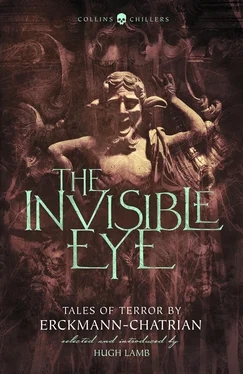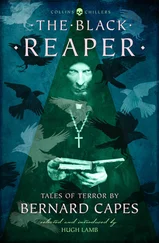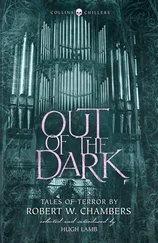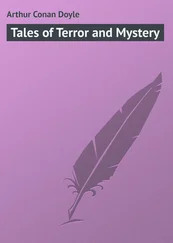Then, clashing with the thread of the inspiration, came some sharp incisive notes, piercing the ear.
‘Theodore Blitz is here,’ said I to myself, putting aside the high branches of an elder hedge at the foot of a slope.
I looked around me, and my eyes fell upon a horse-pond covered with duck-weed, where the big frogs showed their flat noses. A little farther off rose some stables, with their big sheds, and an old dwelling-house. In the court, surrounded by a wall breast-high in which was a worm-eaten door, walked five or six fowls, and under the great stall ran the rabbits, their croups in the air, their tails up. When they saw me they disappeared under the gate of the grange like shadows.
No noise save the flow of the river and the bizarre fantasy of the violin could be heard.
Where on earth was Theodore Blitz?
The idea occurred to me that he was perhaps making trial of his music on the family of the Mutzes, and, curiosity impelling me, I glided into a hiding-place beside the wall to see what would happen in the farm.
The windows were all wide open, and in a room on the ground floor, long, with brown beams, level with the court, I perceived a long table furnished with all the sumptuousness of a village feast. Twenty or thirty covers were there. But what most astonished me was to see but five persons in front of this grand display. There was old Mutz, sombre and thoughtful, clad in a suit of black velvet with metal buttons. His large osseous head, grey, his forehead contracted in fixed thought, his eyes sunken, staring before him. There was the son-in-law, thin, insignificant, the neck of his shirt coming up almost to his ears. There was the mother in a great tulle cap, with a distracted look; the daughter – a rather pretty brunette – in a cap of black taffeta with spangles of gold and silver, her bosom covered with a silk neckerchief of a thousand colours. Lastly, there was Theodore Blitz, his three-cornered hat over his ear, the violin held between his shoulder and chin, his little eyes sparkling, his cheeks standing out in relief from a deep wrinkle, and his elbows thrown out and drawn in, like a grasshopper scraping its shrill aria on the heath.
The shades of the setting sun, the old clock with its delf dial with red and blue flowers, and above all the music, which grew more and more discordant, produced an indefinable impression upon me. I was seized with a truly panic terror. Was it the effect of my having breathed too long the rudesheim ? Was it the effect of the pale tints of the falling night? I do not know; but without looking farther I glided away as quietly as possible, bending down, creeping by the wall in order to regain the road, when all of a sudden a large dog darted the length of his chain towards me, and made me utter a cry of surprise.
‘Tirik!’ cried the old postmaster.
And Theodore, perceiving me, jumped out of the room, crying: ‘Ah! it is Christian Species! Come in, my dear Christian! You have come most opportunely.’ He strode across the court, and came and took my hands.
‘My dear friend,’ said he to me, with strange animation. ‘This is a time when the black and the white engage with one another. Come, in come in.’
His excitement frightened me, but he would accept none of my excuses, and dragged me on without my being able to make any resistance.
‘You must know, dear Christian,’ said he, ‘that we have this morning baptized an angel of heaven, the little Nickel Saphéri Brêmer. I have celebrated her coming into the world by the chorus of the “Séraphins”. Nevertheless, you may imagine that three-fourths of those who were invited have not come. Ha! ha! ha! Come in then! You will be welcome.’
He pushed me on by the shoulders, and willing or unwilling, I stepped across the threshold.
All the members of the Mutz family turned their heads. I should have liked not to have sat down, but those enthusiasts surrounded me.
‘This will be the sixth!’ cried Blitz. ‘The number six is a good number!’
The old postmaster took my hands with emotion, saying: ‘Thanks, Monsieur Species, thanks for having come! They say that honest folk fly from us! That we are abandoned alike by God and by man! You will stop to the end?’
‘Yes,’ mumbled the old woman, with a supplicating look. ‘Surely Monsieur Species will stay to the end. He will not refuse us that?’
Then I understood why the table was set in such grand fashion, and why the guests were so few. All of those invited to the baptism, thinking of Gredel Dick, had made excuses for not coming.
The idea of a like desertion went against my heart.
‘Oh, certainly,’ I said. ‘Certainly! I will stay – with pleasure – with great pleasure!’
The glasses were refilled, and we drank of a rough strong wine, of an old markobrünner , the austere flavour of which filled me with melancholy thoughts.
The old woman, putting her long hand upon my shoulder, murmured: ‘Just a drop more, Monsieur Species, just a drop more.’
And I dared not say no.
At that moment Blitz, passing his bow over the vibrating cords, made a cold shudder pass through all my limbs.
‘This, my friends,’ said he, ‘is Saul’s invocation to the Pythoness.’
I should have liked to run away, but in the court the dog was lamentably howling, the night was coming on, and the room was full of shadows. The harsh features of old Mutz, his keen eyes, the sorrowful compression of his big jaws, did not reassure one.
Blitz went on scraping, scraping away at that invocation of his, with great sweeps of his arm. The wrinkle which ploughed itself deep down his left cheek grew deeper and deeper, the perspiration stood on his forehead.
The postmaster filled up our glasses again, and said to me in a low imperious voice: ‘Your health.’
‘Yours, Monsieur Mutz,’ responded I, trembling.
All of a sudden the child in the cradle commenced to cry, and Blitz, with a diabolical irony, accompanied its shrill wailing with piercing notes, saying: ‘It is the hymn of life – ha! ha! ha! Really, little Nickel sings it as if he were already old – ha! ha! ha!’
The old clock at the same time commenced to strike in its walnut-tree case; and when I raised my eyes, astonished by the noise, I saw a little figure advance from the background, bony, bald, hollow-eyed, a mocking smile on its lips – Death, in short.
He came out a few steps and set himself to gather, by jerks, some bits of flowers painted in green on the edge of the clock-case. Then, at the last stroke of the hour, he turned half round and went back to his den as he had come out.
‘Why the deuce did the organist bring me here?’ said I to myself. ‘This is a nice baptism! And these are merry folk – ha! ha! ha!’
I filled my glass and drank it in order to gain courage.
‘Well, let us go on, let us go on. The die is cast. No one escapes his destiny. I was destined before the commencement of the ages to go this evening to the custom-house; to walk in the alley of Saint-Landolphe; to come in spite of myself to this abominable cut-throat place, attracted by the music of Blitz; to drink markobrünner which smacks of cypress and vervain; and to see Death gathering painted flowers! Well, it is droll – truly droll!’
So I dreamed, laughing at men who, thinking themselves free, are dragged on by threads attached to the stars. So astrologers have told us, and we must believe them.
I laughed then amongst the shadows as the music ceased.
A great silence fell around. The clock alone broke the stillness with its regular tick-tack; outside the moon, slowly rising over the Rhine, behind the trembling foliage of a poplar, threw its pale light over innumerable ripples. I noticed it, and saw a black boat pass along in the moon’s reflected light. On it was a man, all dark like the boat. He had a loose cloak around him, and wore a large hat with a wide brim, from which hung streamers.
Читать дальше












